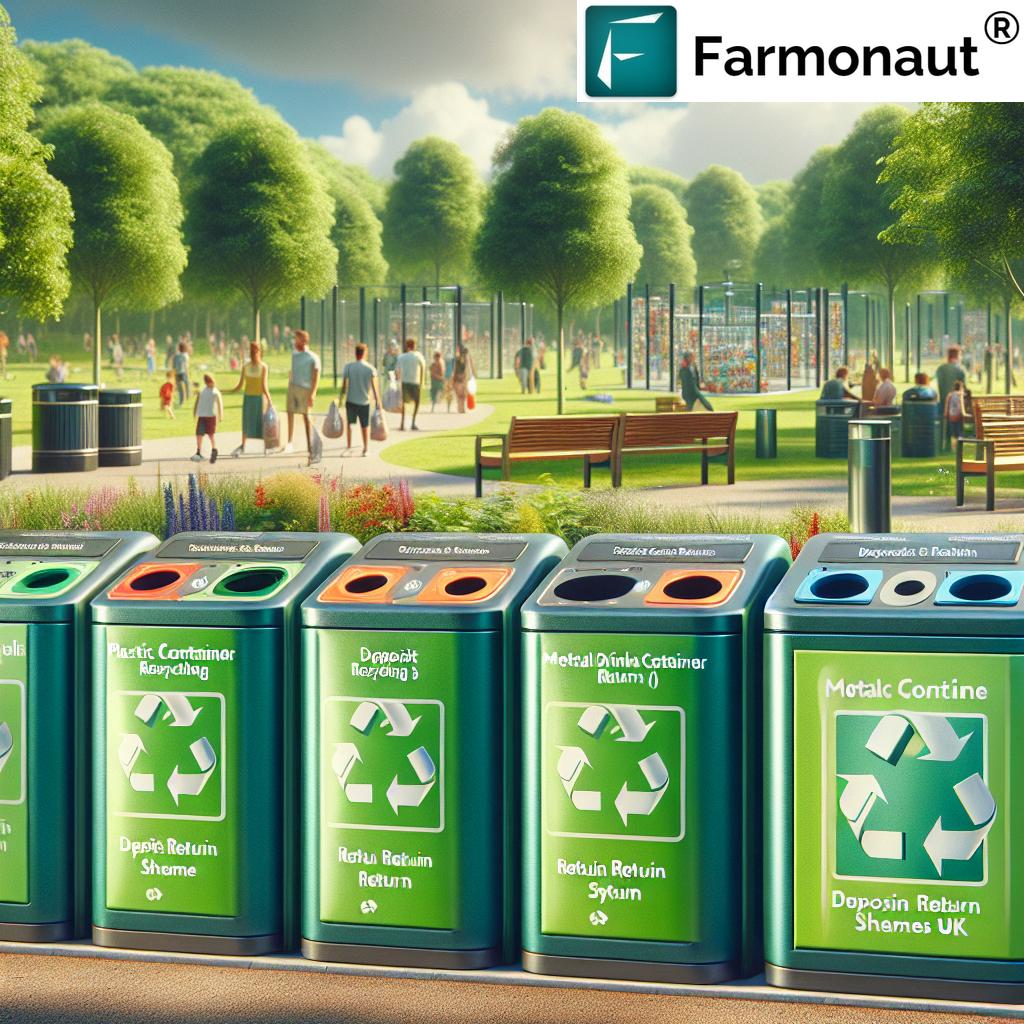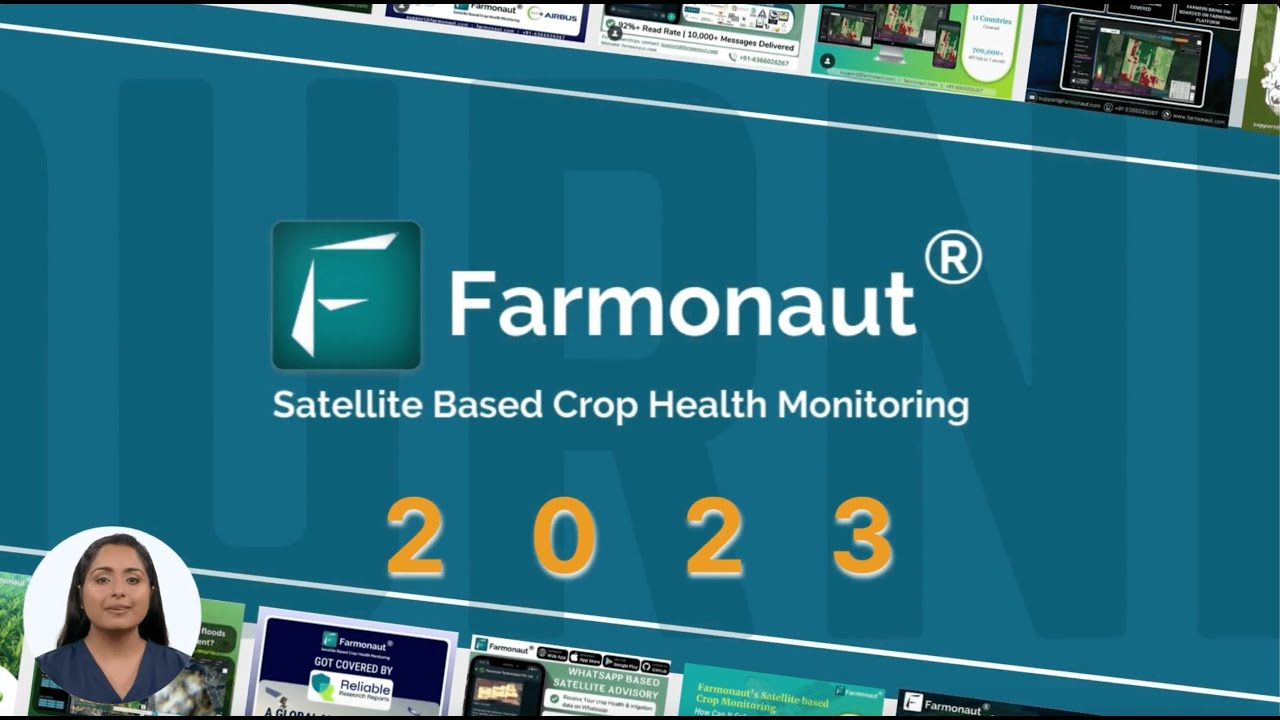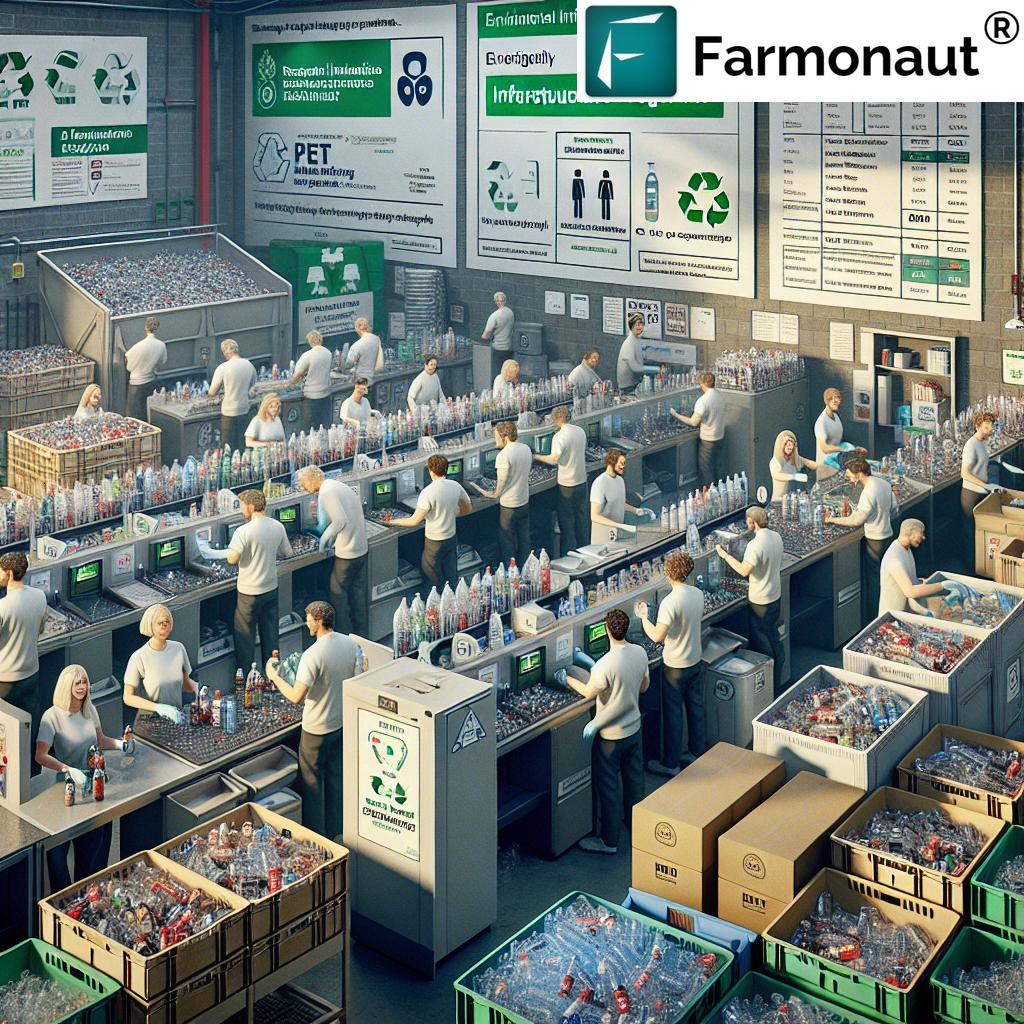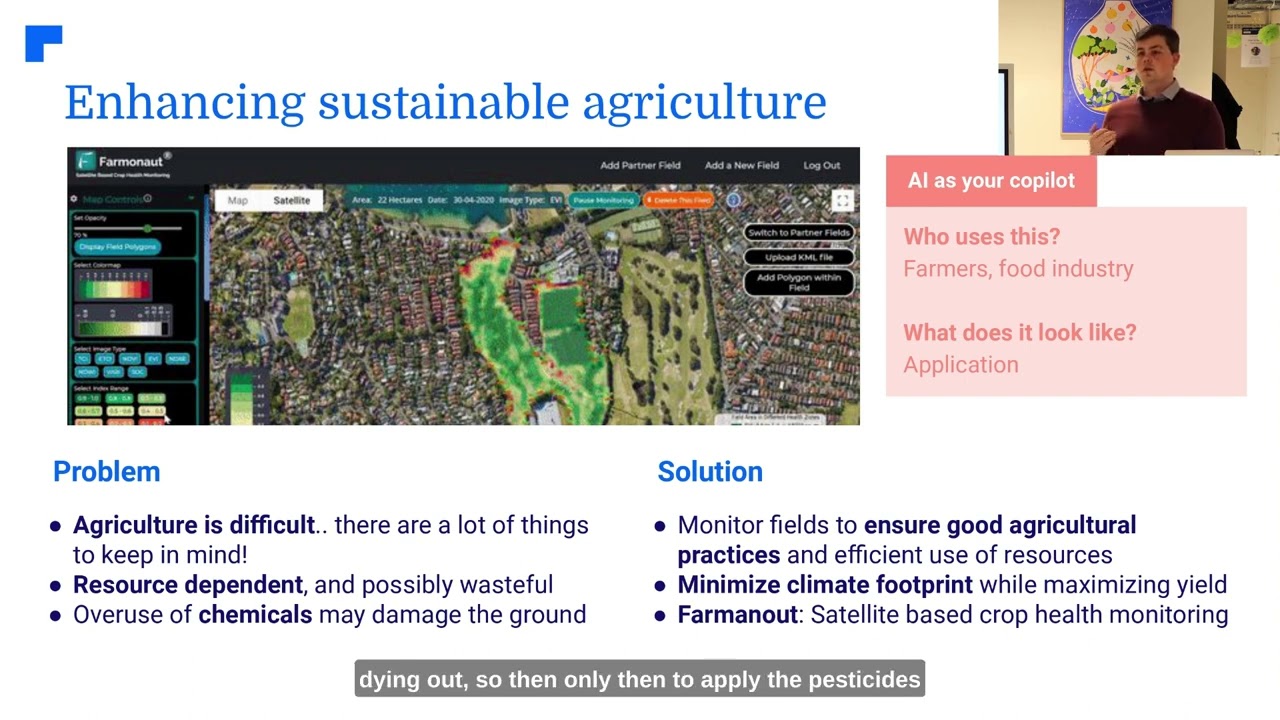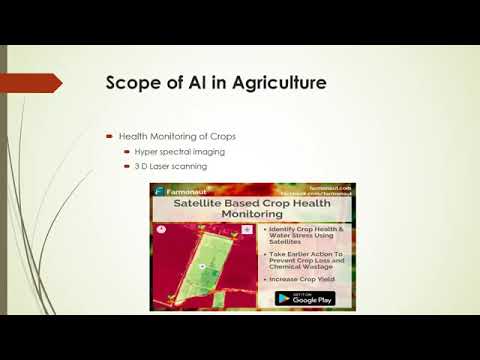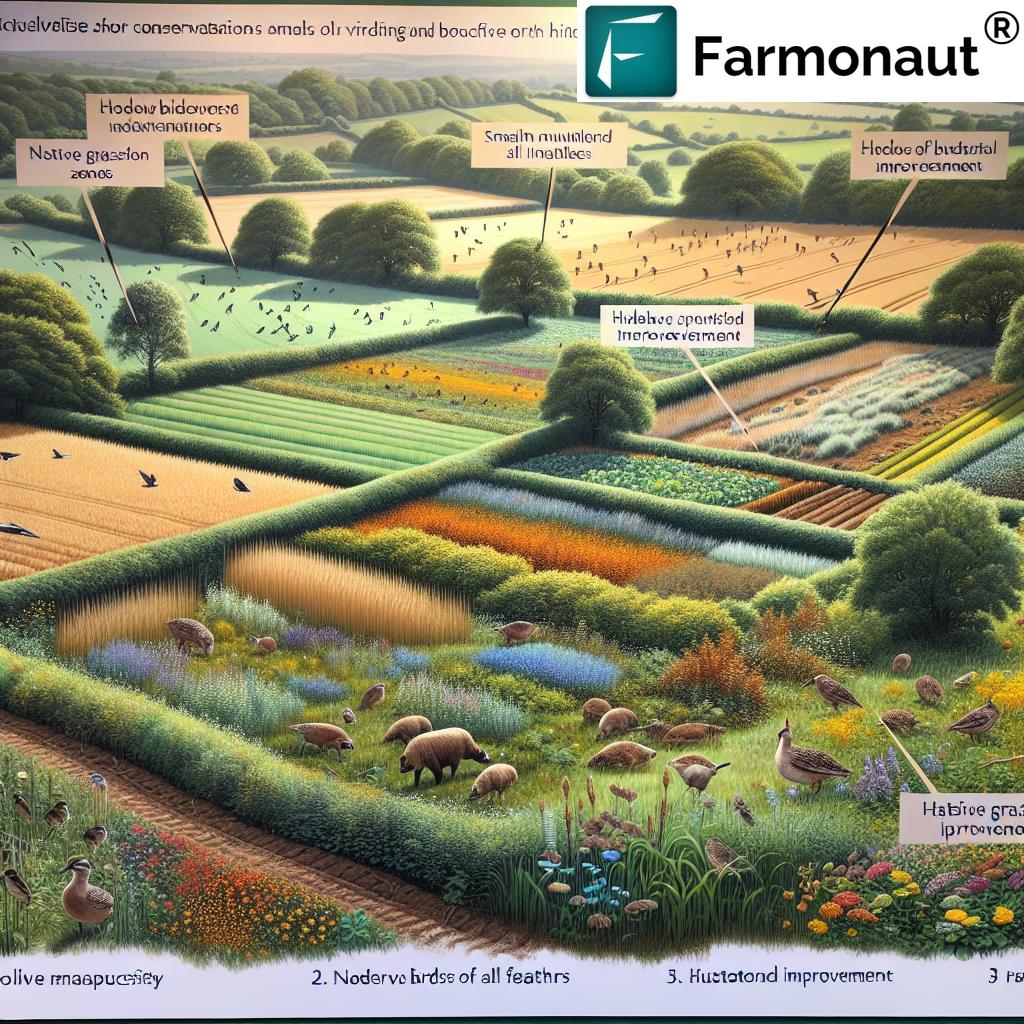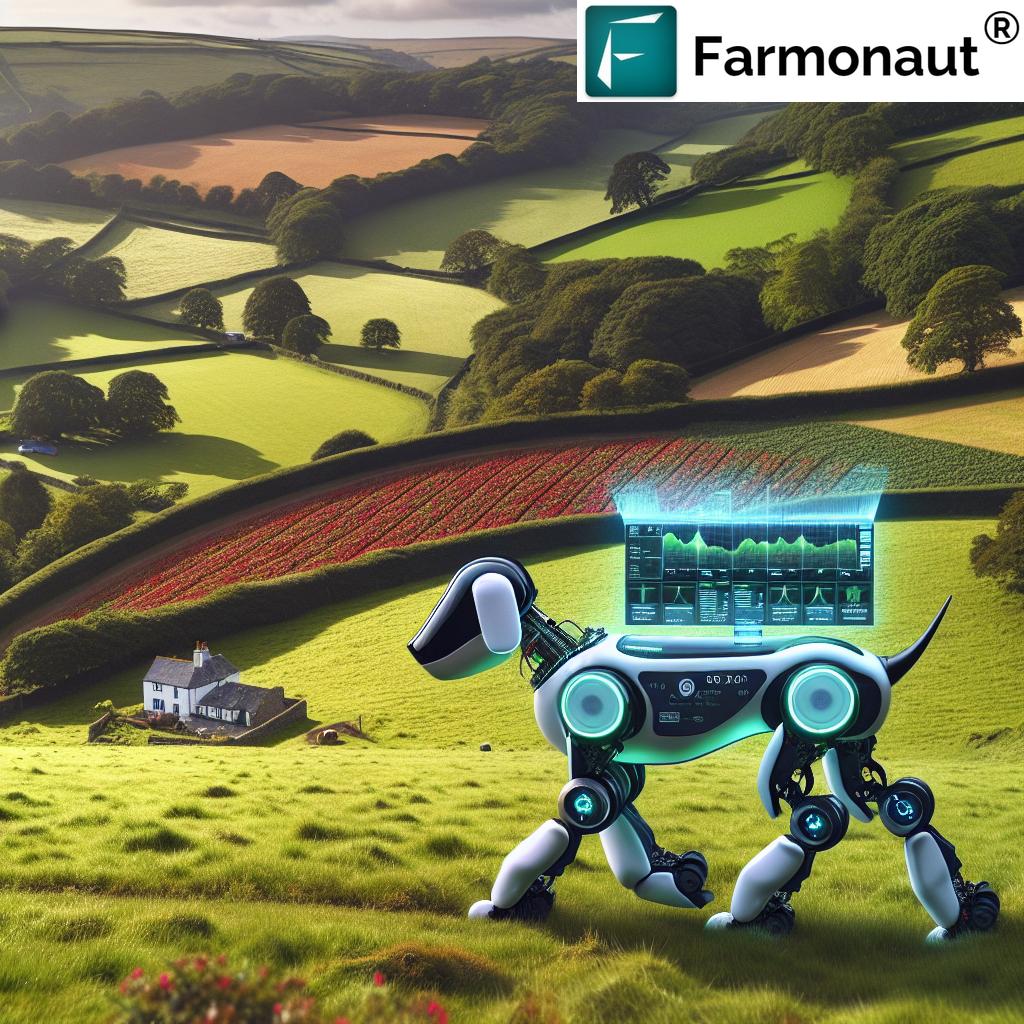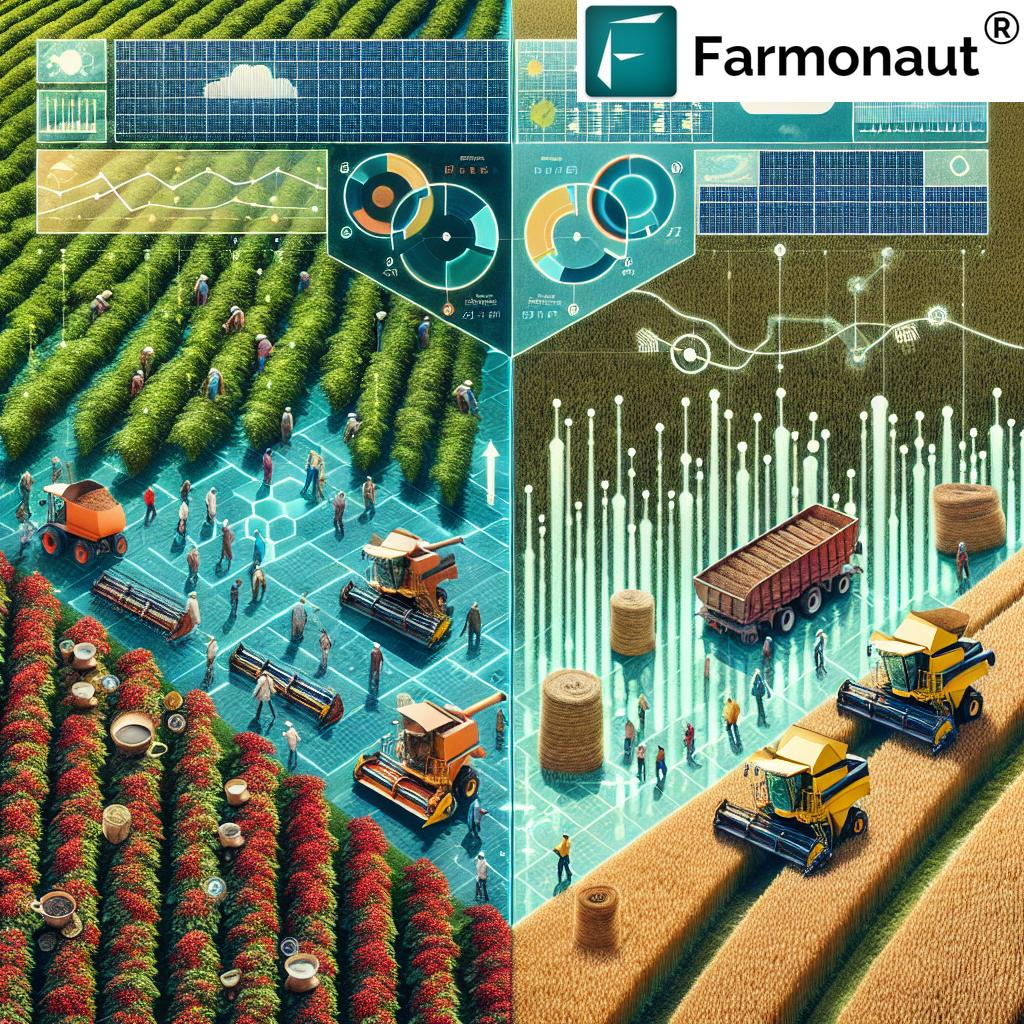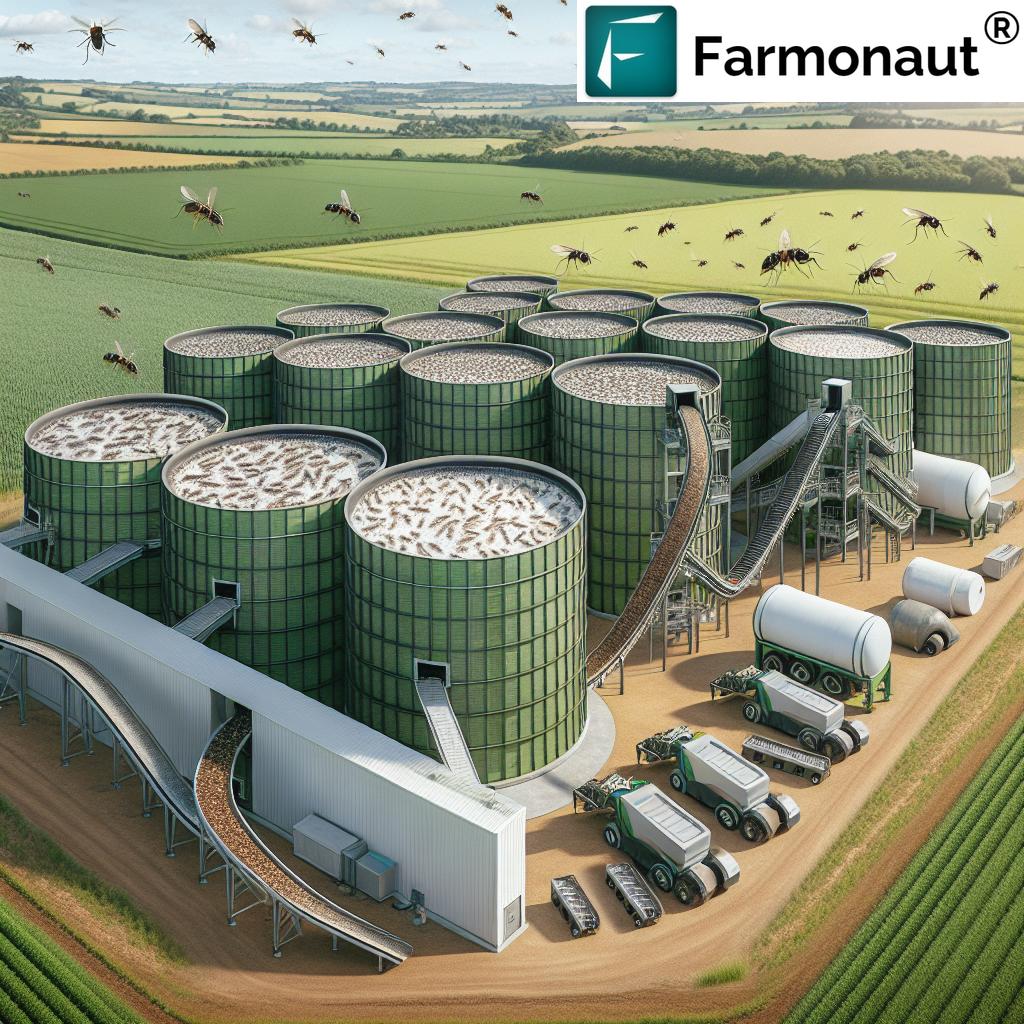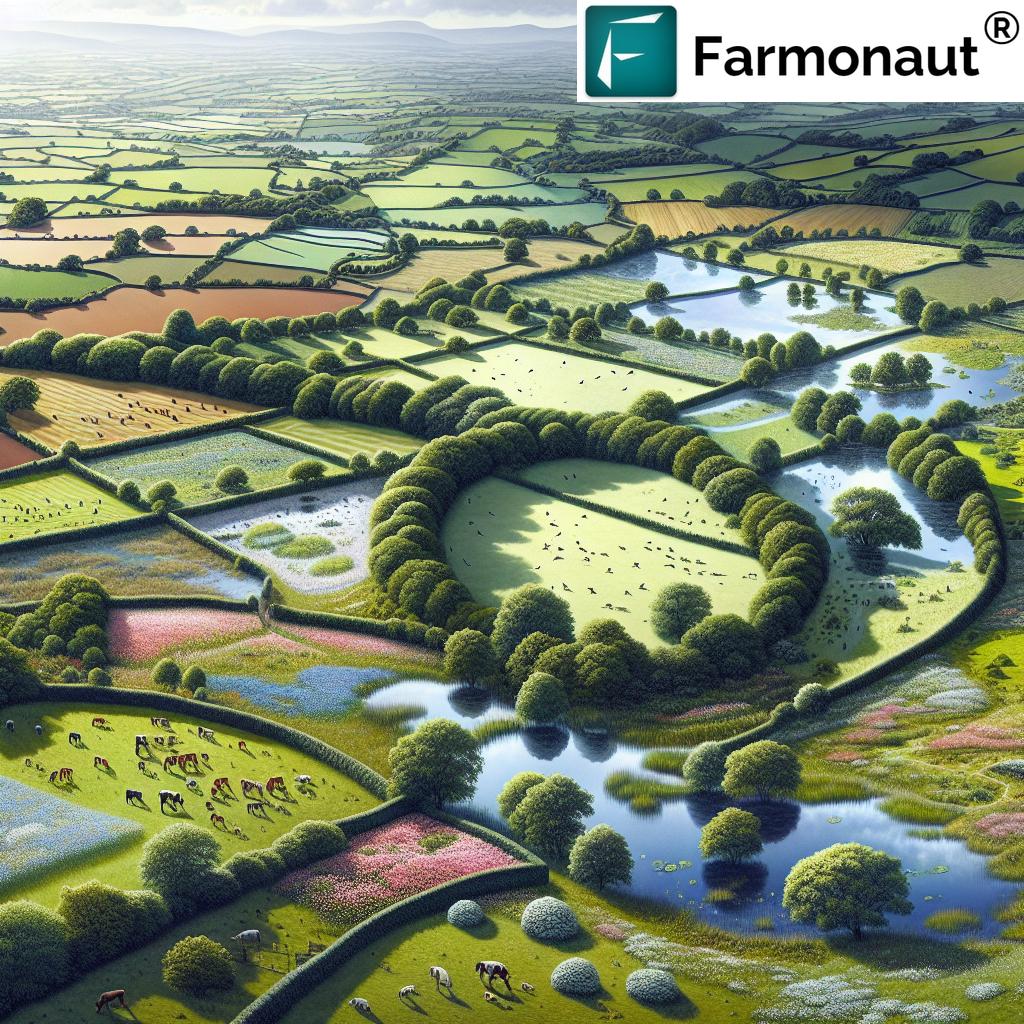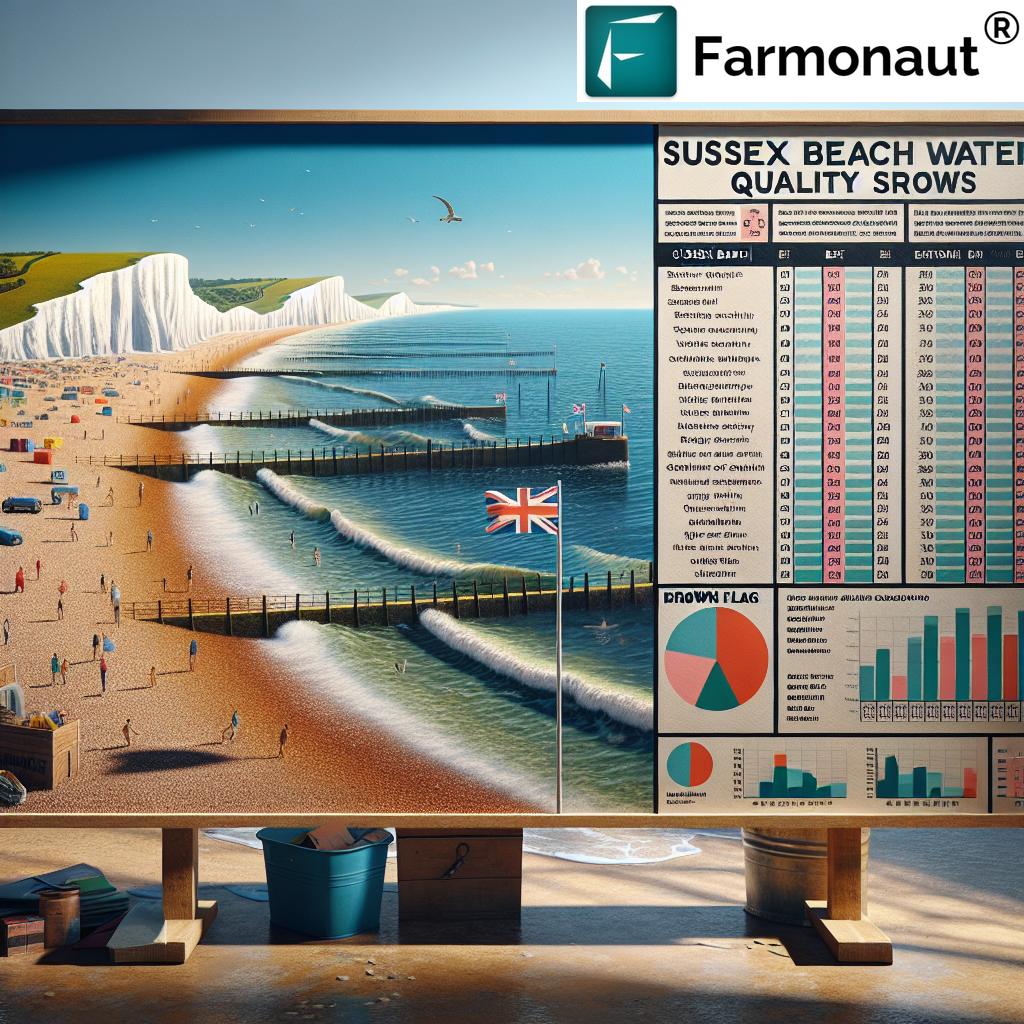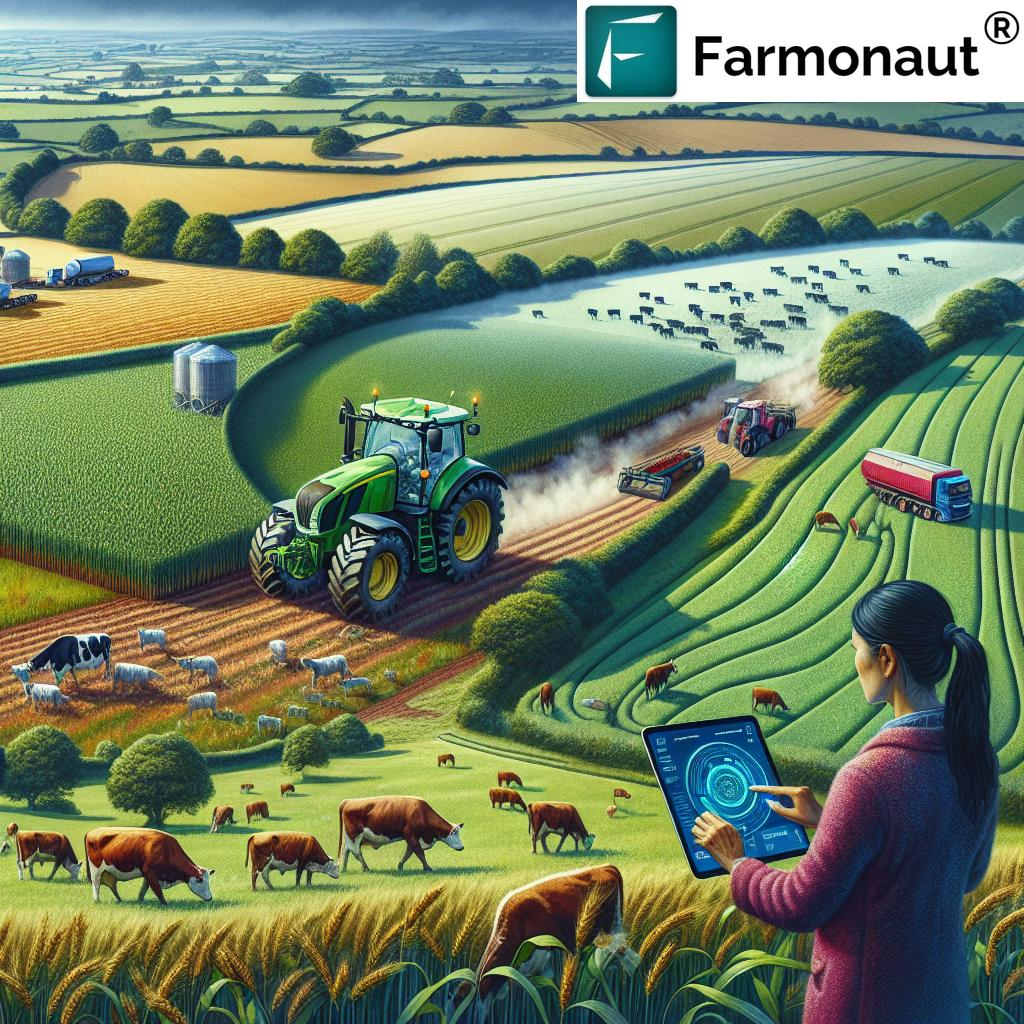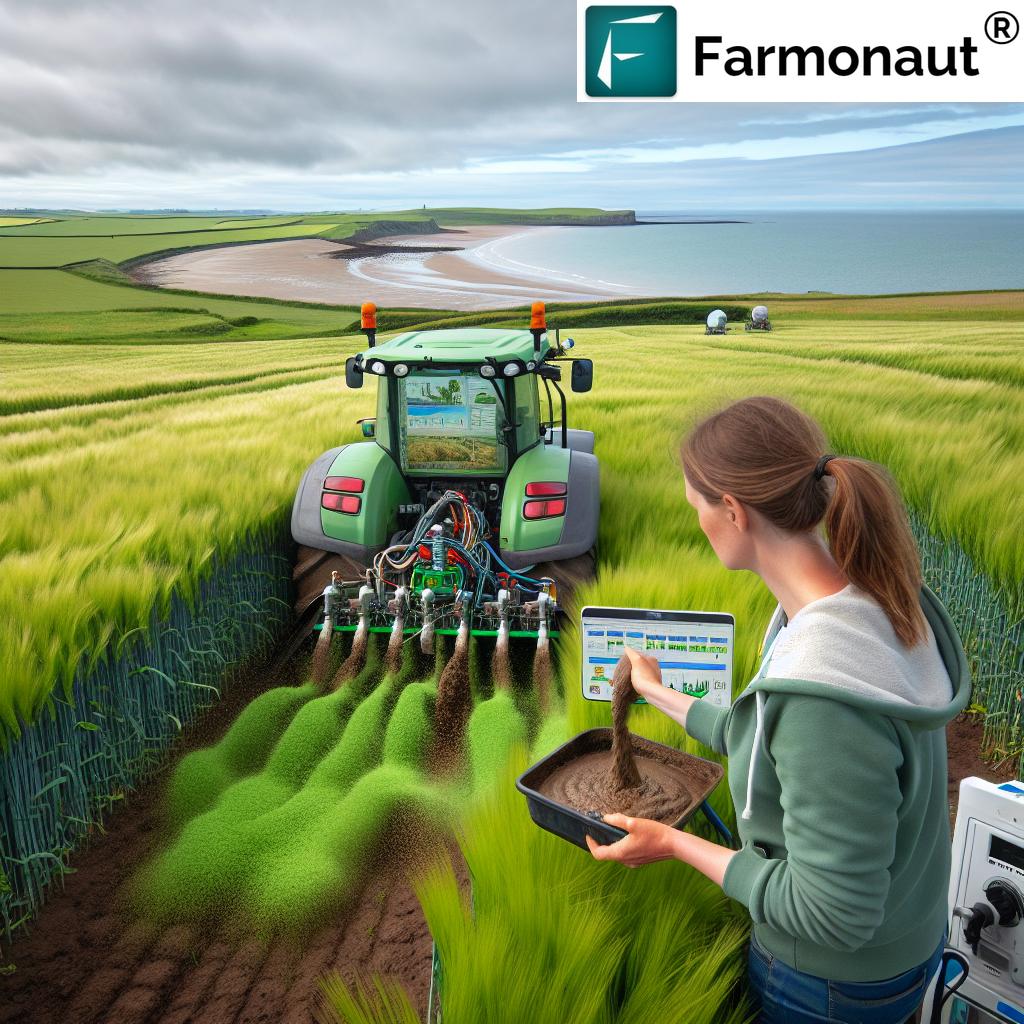7 Key Benefits of Deposit Return Schemes in England & NI
“England’s Deposit Return Scheme could cut plastic bottle litter by up to 85% annually.”
Table of Contents
- Introduction: Why Deposit Return Schemes Matter
- Context: The Evolution of Deposit Return Schemes UK
- How the Deposit System for Consumers Works
- Comparative Table: 7 Key Benefits & Impact
- 1. Significant Reduction in Litter UK
- 2. Boost in Recycling Initiatives Northern Ireland & England
- 3. Catalyst for Improved Environmental Infrastructure Programme
- 4. Cutting Carbon Emissions Schemes Across Nations
- 5. Economic Growth, Investment, and Job Creation
- 6. Enhanced Consumer Engagement & Awareness
- 7. Stronger Governance, Management, and Oversight
- Technology, Sustainability & Farmonaut’s Environmental Role
- Frequently Asked Questions (FAQ)
- Conclusion: A Greener, Cleaner Future Through Deposit Return Schemes
- Farmonaut Subscription Options
Introduction: Why Deposit Return Schemes Matter
Deposit return schemes in the UK are poised to be a game-changer for environmental sustainability, especially across England and Northern Ireland. With a focus on tackling plastic and metal drinks containers waste, these schemes aim to bring about wide-reaching benefits ranging from a cleaner environment to robust economic growth. In this comprehensive analysis, we will unpack the 7 key benefits of these schemes, explain how the system operates under the newly appointed UK Deposit Management Organisation Ltd (UK DMO), and highlight the positive impacts for every stakeholder—from consumers and businesses to our environment.
By understanding the structure and strategy of these drs initiatives, we can realize the ambitions of the UK Government, Department of Agriculture, Environment and Rural Affairs (DAERA), and Scottish Ministers. With schemes launching in October 2027, England, Northern Ireland, and Scotland are on track to reduce litter, increase recycling, and promote sustainable, data-driven decision-making.
“Over 44 billion drinks containers are used yearly in the UK—deposit schemes aim to recycle most of them.”
Context: The Evolution of Deposit Return Schemes UK
The emergence of deposit return schemes uk is not just a policy maneuver but a crucial component of the larger environmental infrastructure programme the UK government is determined to deliver. At the heart of these efforts is the newly confirmed operator, UK DMO—a not-for-profit, business-led organisation that will implement and oversee the DRS across England, Northern Ireland, and Scotland.
The DRS programme is designed to tackle the pressing challenge of approximately 6.5 billion single-use drinks containers discarded each year. These containers account for almost half (43%) of all environmental litter—impacting parks, rural spaces, and our urban centers. The strategic vision is clear: reduce litter UK, increase plastic container recycling England, and pave the way for environmentally responsible consumption and disposal habits.
The DRS operator is working in partnership with national governments, the Department of Agriculture, Environment and Rural Affairs (DAERA), supported by Scottish ministers and key industry & retail associations. Their collective goal is to deliver a transformative shift in recycling and reprocessing infrastructure, stakeholder engagement, and transparent management for the benefit of all.
How the Deposit System for Consumers Works
Under the new system scheduled for October 2027, consumers in England, Northern Ireland, and Scotland will pay a small deposit (amount set by the board and relevant governance structure) at the point of purchase for eligible drinks. These plastic, PET, steel, and aluminium containers—ranging from 150ml to 3 litres—will qualify for deposit return.
- When the empty container is returned for recycling at participating retailers or return points, the deposit is fully refunded.
- This model incentivizes the return of used containers and ensures materials are recycled and reprocessed, instead of ending up as litter or landfill.
- Metal drinks container return is equally prioritized alongside plastic container recycling England for maximized environmental and economic impact.
This innovative system aligns with modern government environmental policy uk and places responsibility on both businesses and consumers to actively participate in conservation efforts.
Comparative Benefits Table: The 7 Key Benefits of Deposit Return Schemes
To better understand the impact, here is a comparative table showing each core benefit, its description, estimated impact values, and the resulting environmental outcomes across England and Northern Ireland.
| Benefit Name | Description | Estimated Impact | Environmental Outcome |
|---|---|---|---|
| Reduction in Litter UK | Drastically decrease single-use container litter in public spaces | Up to 85% reduction in plastic bottle litter annually; 43% of all litter targeted | Cleaner parks, roadsides, riversides, and urban areas |
| Increased Recycling Rates | Significant rise in recycling of PET plastic, steel, and aluminium containers | Up to 90% return and recycling rate projected, billions fewer containers wasted | Higher material recovery, resource conservation |
| Resource Conservation | Reduced need for virgin raw materials by improving recycling and reprocessing infrastructure | Reduction in energy usage & raw material extraction | Lower depletion of finite resources; sustainable production cycles |
| Lower Carbon Emissions | Less waste incineration and landfill equals fewer greenhouse gas emissions | Thousands of tonnes of CO₂ equivalent avoided annually | Cleaner air, reduced climate impact |
| Economic Benefits | New jobs, industry investment, and robust recycling market growth | Up to 4,000 jobs, £1 billion+ in industry investment | Stronger local economies, green jobs boom |
| Engaged Consumer Behaviour | Active participation in return and recycling; increased public awareness | Widespread cultural shift towards sustainability | More responsible communities, environmental education |
| Stronger Managed Schemes | Transparent governance and fraud prevention via business-led board and oversight | Reduced fraud; public trust in scheme effectiveness | Long-term viability, regulatory compliance |
1. Significant Reduction in Litter UK
One of the most compelling outcomes is the enormous reduction of littered containers across England, Northern Ireland, and Scotland. Discarded bottles and cans are a scourge on our countryside, rivers, and urban streets. The deposit return schemes UK are explicitly designed to tackle this, incentivizing the collection and responsible handling of containers.
- A projected 85% decrease in plastic bottle litter annually will transform how we experience our local environment.
- Given drinks containers make up 43% of all litter, removing them significantly lessens pollution in public spaces and natural habitats.
- Regular collection of returned containers supports ongoing environmental management, keeping parks and playgrounds cleaner for everyone.
Key phrase example: Anyone enjoying a picnic or walk in England’s parks will notice a real difference as reduce litter UK strategies take effect, creating cleaner, safer communities.
2. Boost in Recycling Initiatives Northern Ireland & England
The second benefit addresses increasing recycling rates through focused recycling initiatives Northern Ireland and England. By attaching a tangible value to returned containers—plastic, steel, aluminium, or PET—the DRS transforms waste into a valuable resource stream.
- The scheme covers drinks containers from 150ml up to 3L, encouraging recycling at all scales.
- Return rates of up to 90% have been achieved in other European countries—England and Northern Ireland are targeting similar success by 2027.
- High return rates mean less waste in landfill and more materials supplied to manufacturing as quality secondary raw materials (especially important for food-grade plastic container recycling England and metal drinks container return).
This not only diverts waste but also supports broader recycling and reprocessing infrastructure development, making our economy more circular and less dependent on global virgin material markets.
3. Catalyst for Improved Environmental Infrastructure Programme
A major goal of the DRS is to stimulate investment in infrastructure for recycling and environmental management. This programme is described as a landmark in the government’s sustainability vision, and aims to:
- Modernize collection, storage, sorting, and reprocessing infrastructure across the nations
- Unlock over £1 billion in industry investment within three years
- Support the creation of up to 4,000 new roles in logistics, recycling, and public engagement
By strengthening the recycling and reprocessing infrastructure, England, NI, and Scotland can become European leaders in resource management, setting new standards for environmental stewardship.
Further Reading: Farmonaut’s Carbon Footprinting tool assists agribusinesses and rural projects in tracking and improving their sustainability milestones – a key complement to nationwide environmental initiatives like the DRS.
4. Cutting Carbon Emissions Schemes Across All Nations
Reducing waste not only leads to cleaner streets but also has enormous benefits for carbon emissions.
- Lower landfill and incinerator use means fewer greenhouse gases released.
- Reusing existing materials in manufacturing cuts energy consumption associated with virgin material extraction, especially for steel and aluminum.
- The DRS aligns with the UK’s net zero ambitions.
By closing the loop—from collection to reprocessing—these schemes reduce the climate footprint of our consumption. For businesses required to monitor and reduce their carbon impacts, Farmonaut’s Carbon Footprinting Solutions offer a practical, satellite-aided approach to environmental compliance and sustainability reporting.
5. Economic Growth, Investment, and Job Creation
The economic benefits of a well-managed DRS extend far beyond the recycling industry itself. According to analysis by The Countryside Charity, the new schemes could foster:
- Up to 4,000 roles created in logistics, storage, recycling, and public engagement
- Over £1 billion investment in new and improved infrastructure
- Robust new markets for reprocessed materials, reducing reliance on imports and supporting local businesses
- Enhanced farm management in rural areas by reducing waste on farmland and supporting cleaner fields
This economic multiplier effect supports livelihoods, funds local services, and attracts further environmental innovation across England and Northern Ireland.
For rural logistics optimisation, Farmonaut’s Fleet Management Tools improve efficiency for businesses involved in container collection and agricultural transport, ensuring cost-effective, sustainable operations.
6. Enhanced Consumer Engagement & Awareness
Modern deposit return schemes UK are not just about infrastructure — they drive a cultural transformation in public attitudes towards recycling and sustainability.
- The deposit mechanism directly incentivizes consumer participation. Instead of seeing bottles as waste, people recognize their economic value and environmental importance.
- Participation in the DRS builds everyday habits like sorting, returning, and reusing, strengthening environmental values from an early age.
- Supported by public education campaigns from local governments, NGOs, and community groups, these schemes foster deeper understanding and social buy-in.
Involving young people, schools, households, and businesses in scheme promotion is vital for long-term success, as it transforms recycling from a chore to a social norm. This participatory approach mirrors Farmonaut’s Product Traceability Solutions which help supply chains track and verify products, embedding transparency and trust at every stage.
7. Stronger Governance, Management & Oversight
Finally, robust oversight is foundational to any successful environmental scheme. The UK DMO brings together board members from every part of the value chain—major drinks producers, retailers, logistics experts, and public advocates—to ensure comprehensive representation in scheme design and rollout.
- Transparent financial management and audit processes are mandated by the government and department stakeholders.
- Board members are recruited to bring international best practice, knowledge of scheme operation in other countries, and up-to-date expertise in fraud prevention and data security.
- Open engagement with stakeholders—from businesses and trade associations to local communities and environmental organisations—is a key tenet of the programme.
For scheme participants, policy-makers, and the general public, strong governance maximizes transparency, builds trust, and ensures that the DRS remains effective and sustainable well into the future. For organisations wanting to ensure compliance and transparency in their own supply chains, Farmonaut’s Blockchain-Based Product Traceability Solutions can dovetail with DRS reporting and compliance needs, establishing verifiable environmental credentials.
Technology, Sustainability & Farmonaut’s Environmental Role
While the UK DMO drives the operational aspects of national deposit return schemes, the future of environmental infrastructure and rural sustainability will rest increasingly on advanced technology platforms like Farmonaut.
- Satellite-Based Crop Health Monitoring: Farmonaut’s solutions provide up-to-date data so farmers and agribusinesses can optimize inputs, maximize yield, and minimize waste—promoting resource-efficient agriculture in line with the UK’s rural environmental policies.
- AI-Powered Advisory: Precision insights about soil, weather, and crop health empower data-driven decision-making that enhances economic returns and shrinks environmental impact.
- Blockchain Traceability: Consumer and regulatory pressure for verified, low-impact products is growing. Blockchain-based traceability from Farmonaut makes it easy for supply chains to comply with sustainable sourcing and recycling mandates.
- Fleet and Resource Management: Efficient logistics and storage are at the heart of container reprocessing and agricultural success. Farmonaut’s Fleet Management Platform supports the seamless organization of vehicle movement, reducing costs and emissions.
- Carbon Footprinting: Tracking and auditing emissions is a legal and ethical necessity for modern businesses and organisations. With Farmonaut’s Carbon Footprinting tools, agricultural enterprises and environmental projects can measure, monitor, and reduce their carbon impacts with confidence.
Farmonaut is committed to democratizing precision agriculture and sustainability globally by integrating satellite imaging, AI, and blockchain, making advanced environmental stewardship accessible to all—especially where it aligns with policy drivers like the DRS.
Explore advanced solutions for large-scale farm management and advisory at Farmonaut Agro-Admin and smart decision-making for plantation, forest, and crop advisory.
Developers can seamlessly integrate satellite and weather data for sustainability and compliance into external systems through the Farmonaut API. Full documentation is available at API Developer Docs.
Frequently Asked Questions (FAQ)
What is a Deposit Return Scheme (DRS)?
A Deposit Return Scheme is a government-backed, organization-managed system where consumers pay a small refundable deposit when buying drinks in containers (such as PET plastic, steel, or aluminium). When the empty container is returned for recycling, the deposit is refunded, encouraging recycling and reducing litter.
Who runs the UK DRS?
The UK DRS is operated by the UK Deposit Management Organisation Ltd (UK DMO), a not-for-profit, business-led operator appointed by the government, DAERA, and Scottish Ministers, covering England, Northern Ireland, and Scotland.
What containers are covered?
The scheme covers single-use drinks containers made from PET plastic, steel, and aluminium, ranging from 150ml to 3 litres.
How much will the deposit be and how do I get it back?
The deposit amount will be set by the DRS board and is fully refunded when you return the empty container to a designated return point or retailer.
When does the DRS start?
The scheme will launch in October 2027 in England and Northern Ireland, joining similar schemes already operational in Scotland.
Does DRS create jobs?
Yes, estimates suggest up to 4,000 new jobs will be created, with over £1 billion in associated industry investment, supporting key recycling, logistics, and environmental engagement roles.
How does DRS help reduce carbon emissions?
By diverting containers from landfill and incineration, the DRS cuts greenhouse gas emissions from waste and energy-intensive production, directly supporting UK climate targets.
How can businesses or stakeholders stay informed?
Interested parties can register for updates via the UK DMO website. Ongoing stakeholder engagement is central to the scheme’s rollout and long-term management.
Conclusion: A Greener, Cleaner Future Through Deposit Return Schemes
The deposit return schemes UK represent a watershed moment for environmental policy, infrastructure investment, and public stewardship. By working collaboratively—across industries, communities, and nations—we can achieve dramatic reductions in litter, enhanced recycling, lower carbon emissions, and sustainable economic growth.
Every stakeholder, from consumers making conscious return choices to businesses innovating in recycling technology, shapes our shared future. With the added advantages of advanced digital tools and platforms like Farmonaut, we can harness data-driven decisions and transparent supply chains for greater sustainability.
As we approach the October 2027 launch, it is critical for businesses, producers, retailers, environmental organisations, and citizen groups to stay informed, engaged, and proactive—ensuring the DRS delivers on its immense promise for England, Northern Ireland, and Scotland.
Farmonaut Subscription Options
Whether you’re managing a local farm, a large cooperative, or contributing to national environmental programmes, Farmonaut offers tailored subscription packages to help monitor, analyze, and supercharge your sustainability goals.
Related Product Pages:
- Carbon Footprinting: Real-time, satellite-driven emission tracking – ideal for DRS participants, environmental organizations, and businesses complying with UK climate targets.
- Blockchain-Based Traceability: End-to-end, tamper-proof supply chain transparency for those engaging with recycling or DRS reporting requirements.
- Crop Loan and Insurance Verification: For financial institutions, reducing fraud and accelerating approvals for rural loans and insurance with satellite intelligence.
- Fleet & Resource Management: Optimize transport, collection, and logistics for container returns and agricultural products—cutting costs and lowering emissions.
- Large-Scale Farm Management: Administrative and large-holder monitoring for maximum yield, minimal waste, and policy compliance.
- Plantation, Forest, and Crop Advisory: Smart recommendations and satellite-based advisory for all crop types and plantation contexts.
We invite all stakeholders—governments, producers, businesses, retailers, environmental organisations, and consumer groups—to register for updates and explore ways to be part of the UK’s most ambitious environmental infrastructure programme to date.
Together, let’s build a greener, more sustainable future—one container at a time.





